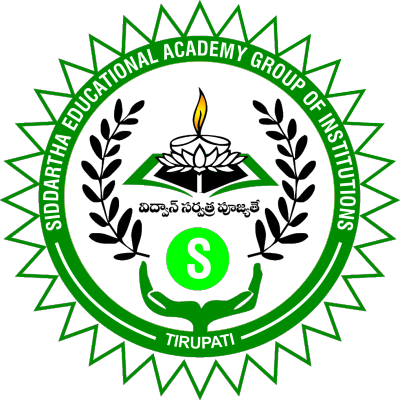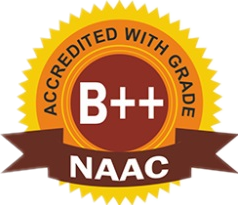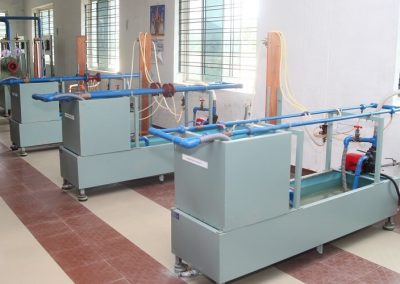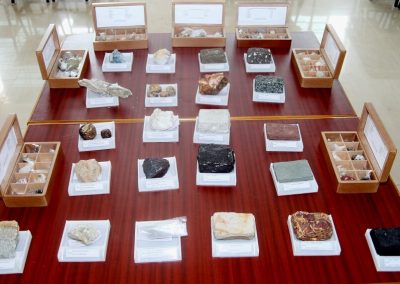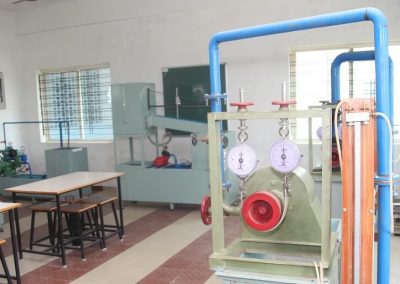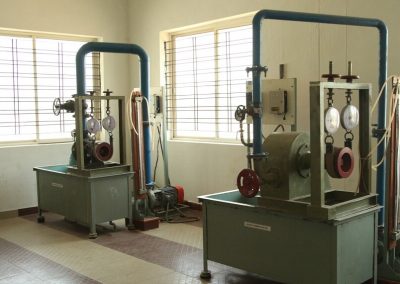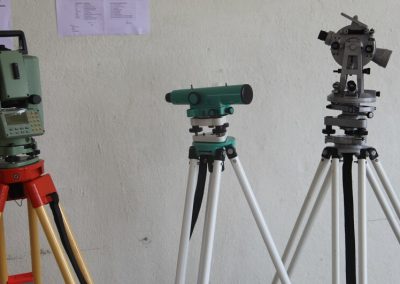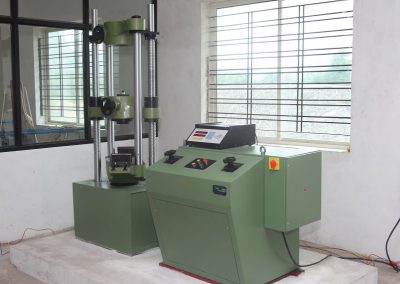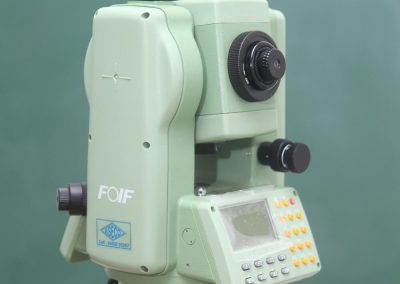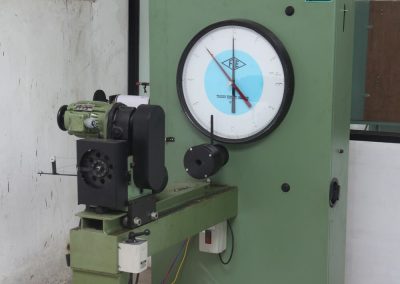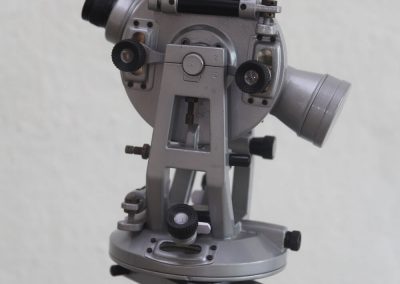Siddartha Educational Academy
Civil Engineering
The Department of Civil Engineering was started in the year 2009 for providing quality education and training in the field of Civil Engineering. It is not an exaggeration to say that no student, who are completed 4 years of study in B. Tech Civil Engineering course at Siddartha is unemployed.
Civil Engineering (Civil) offers a Bachelor’s program with an initial intake of 60 students in the year 2009and Master’s programmes in Structural Engineeringin the year 2012 with an intake of 24 students.
The Department has well equipped laboratories, which are upgraded regularly to serve the academic guidelines prescribed by JNTUA, but also facilitate to carry out innovative projects to challenge the fast-changing needs of the society and has spacious classrooms with LCD Projectors with digital technologies, supported by highly qualified and experienced faculty. The Department has a friendly atmosphere between faculty and students to share the knowledge for the emerging technologies. The faculty members of the Department are not only involved in trending technology research but are also very passionate about teaching and learning process.
The college has SWAYAM NPTEL Local Chapter, all the Civil Engineering Faculty and students are encouraged to do NPTEL certifications in various subjects.
Civil Engineering programme emphasizes on industrial training to students within four years of the study. Students are placed for training in the industry as per the curriculum of JNTUA University. The student learns industrial practices and also professional ethics.
The Department’s focus is not only on creating professional competencies among our graduates but also provides complete approach to their development who could contribute to the success of the society. Department has well equipped and excellent computational facilities. Department has an Advanced Computer Laboratory to carry out research in the area of designing of Bridges, Structures, Sky Scrapers etc. Faculty members and students are actively engaged in research and development.
To match with the current social requirements and latest developments in the area of specialization, expert Guest Lectures are arranged regularly. Industrial Tours, Technical Workshops, Soft Skill training programs are arranged for the development of leadership and professional skills. Through campus interviews, all eligible students are supported for placements in various industries and companies. Students are encouraged to pursue higher education.
We hope this provides all the required information for the students and other interested people who wish to know about the Department and its activities. We wish to work together to make this society a better place, contribute to the development and success of every individual.
The Department concentrates essentially on teaching & conducting laboratories, the fundamentals of civil engineering in an effective manner.
Some of our civil branch students achievements:
- The Department boasts of a university gold medal from JNTUA in year 2015, and the candidate is Mrs K. AMANI.
- Siddhartha bags Regularly Pratibha awards from JNTUA, almost every year there is a candidate winning the award.
- Our students are qualifying for GATE Examinations regularly
- Our students studied in NIT’s, university engineering colleges including JNTUA and some of the reputed deemed universities.
- Our students are very well settled in abroad in countries like USA , UK , AUSTRALIA , NEWZLAND.
VISION :
To become and stay as a center of excellence in the field of Civil Engineering and contribute for the building up of a better living environment, infrastructural facilities and the protection of natural resources.
MISSION :
M1: To contribute to the society by successfully training high quality Civil Engineering graduates.
M2: To impart high quality education to enable students face challenges in the fields of Civil Engineering.
M3: To provide facilities, infrastructure, environment to develop the spirit of innovation, creativity, and research among students and faculty.
M4: To inculcate ethical, moral values and lifelong learning skills in students to address the societal needs.
M5: To transform the students as leaders in Civil Engineering to achieve professional excellence in the challenging world.
| Program Educational Objectives (PEOs) | |
| PEO1 | Become successful civil engineering professionals either in government agencies or in private companies |
| PEO2 | Become responsible Civil Engineers with good leadership qualities to respond and contribute to the society in solving problems. |
| PEO3 | Engage in lifelong learning with good computational skills and work with multi-disciplinary approach and team spirit. |
| PEO4 | Equip the graduates with strong knowledge, competence and soft skills that allows them to contribute ethically to the needs of society. |
| PEO5 | Become successful entrepreneurs. |
| Program Outcomes (POs) | |
| PO1 | Engineering Knowledge: Apply knowledge of mathematics, science, engineering fundamentals, and an engineering specialization to the solution of complex engineering problems. |
| PO2 | Problem analysis: Identify, formulate, review research literature and analyze complex engineering problems reaching substantiated conclusions using first principles of mathematics, natural sciences, and engineering sciences. |
| PO3 | Design/development of solutions: Design solutions for complex engineering problems and design system components or processes that meet the specified needs with appropriate consideration for the public health and safety, and the cultural, societal, and environmental considerations. |
| PO4 | Conduct investigations of complex problems: Use research-based knowledge and research methods including design of experiments, analysis and interpretation of data, and synthesis of the information to provide valid conclusions |
| PO5 | Modern tool usage: Create, select, and apply appropriate techniques, resources, and modern engineering and IT tools including prediction and modelling to complex engineering activities with an understanding of the limitations. |
| PO6 | The engineer and society: Apply reasoning informed by the contextual knowledge to assess societal, health, safety, legal and cultural issues and the consequent responsibilities relevant to the professional engineering practice. |
| PO7 | Environment and sustainability: Understand the impact of the professional engineering solutions in societal and environmental contexts, and demonstrate the knowledge of, and need for sustainable development. |
| PO8 | Ethics: Apply ethical principles and commit to professional ethics and responsibilities and norms of the engineering practice. |
| PO9 | Individual and team work: Function effectively as an individual, and as a member or leader in diverse teams, and in multidisciplinary settings. |
| PO10 | Communication: Communicate effectively on complex engineering activities with the engineering community and with society at large, such as, being able to comprehend and write effective reports and design documentation, make effective presentations, and give and receive clear instructions. |
| PO11 | Project management and finance: Demonstrate knowledge and understanding of the engineering and management principles and apply these to one’s own work, as a member and leader in a team, to manage projects and in multidisciplinary environments. |
| PO12 | Life-long learning: Recognize the need for, and have the preparation and ability to engage in independent and life-long learning in the broadest context of technological change. |
| Program Specific Outcomes (PSOs) | |
| PSO1 | Analyze and design of civil engineering structures . |
| PSO2 | Should be able to clearly understand the concepts and applications in the field of survey |
| PSO3 |
Should have the capability to comprehend the use of modern design tools to analyze and design the structures. |
| S.No | Name of Lab |
| 1. | Surveying Lab |
| 2. | Strength of Materials Lab |
| 3. | Concrete Technology Lab |
| 4. | Transportation Engineering Lab |
| 5. | Environmental Engineering Lab |
| 6. | Geotechnical Engineering Lab |
| 7. | Engineering Geology Lab |
| 8. | CAD Lab |
| 9. | Applied Mechanics Lab |
| 10. | Fluid Mechanics Lab |
| 11. | Hydraulic Machinery Lab |
Admissions
For more details on admissions and seat availability ..contact here
